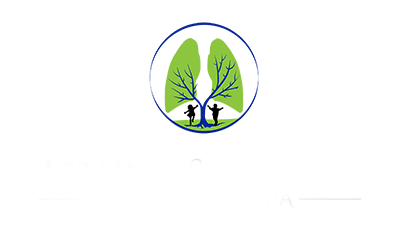How to Tell the Difference Between Fall Allergies and a Cold
As the fall season sets in, it's common to experience symptoms like sneezing, congestion, and a runny nose. But how can you tell if these symptoms are due to fall allergies or just a seasonal cold? Understanding the key differences between the two can help you manage your symptoms more effectively and choose the right treatment. In this article, we’ll explore the distinct signs of allergies versus a cold and provide tips on how to identify which one you might be dealing with.
Key Differences Between Fall Allergies and a Cold
- Cause: Allergens vs. Viruses
- Allergies: Allergies are caused by an immune system response to allergens such as pollen, mold spores, or dust mites. During the fall, common triggers include ragweed pollen, mold from decaying leaves, and dust mites.
- Colds: A cold is caused by a viral infection, most commonly rhinoviruses. Colds are contagious and can be spread through respiratory droplets when an infected person coughs or sneezes.
- Symptom Onset: Gradual vs. Sudden
- Allergies: Allergy symptoms often begin suddenly and can last as long as you’re exposed to the allergen. For example, symptoms may flare up on a day with high pollen counts and subside when you stay indoors.
- Colds: Cold symptoms usually develop gradually over a few days after being exposed to the virus. They typically last 7-10 days.
- Common Symptoms
- Allergies:
- Sneezing, often in rapid succession
- Itchy, watery eyes
- Clear, runny nose
- Nasal congestion
- Itchy throat or ears
- Symptoms improve indoors or with allergy medications
- Colds:
- Sneezing
- Runny or stuffy nose with thicker mucus, which may turn yellow or green
- Sore throat
- Cough, often due to postnasal drip
- Mild fatigue or body aches
- Possible low-grade fever
- Symptoms improve with rest and fluids, but not necessarily with allergy medications
- Allergies:
- Duration: Persistent vs. Short-Term
- Allergies: Allergy symptoms can persist for weeks or even months if the allergen exposure continues. For example, ragweed season can last from late summer through fall.
- Colds: Colds typically resolve within a week or two. If symptoms linger beyond two weeks, it might be due to allergies or another underlying condition.
- Itching: A Telltale Sign of Allergies
- Allergies: Itchy eyes, nose, and throat are hallmark signs of allergies and are not usually associated with a cold.
- Colds: While you may have a sore throat, itching is uncommon with colds.
- Fever and Aches: Common with Colds, Rare with Allergies
- Allergies: Fever and significant body aches are not symptoms of allergies. If you have a fever, it’s more likely that you’re dealing with a cold or another infection.
- Colds: Mild fever and body aches can accompany a cold, particularly in the first few days of illness.
How to Identify if It's Allergies or a Cold
- Consider Your History: If you have a history of seasonal allergies, it’s more likely that your symptoms are due to allergens rather than a cold. Take note if symptoms are consistent year after year.
- Check Your Symptom Triggers: If your symptoms worsen outdoors, especially on windy days or during certain times of the year, allergies may be the cause. Conversely, if symptoms appeared after being in close contact with someone who was sick, it’s more likely a cold.
- Monitor Symptom Patterns: Colds often start with a sore throat, followed by congestion and coughing. Allergy symptoms tend to come on suddenly and include sneezing, itchy eyes, and a clear runny nose.
- Response to Medication: Allergy medications such as antihistamines and nasal corticosteroids are effective in relieving allergy symptoms but won’t do much for a cold. If your symptoms improve with these medications, it’s more likely that you’re dealing with allergies.
When to Seek Medical Advice
If you're still unsure whether you’re dealing with allergies or a cold, or if your symptoms are severe and persistent, it’s a good idea to see a healthcare provider.
Understanding whether your symptoms are due to allergies or a cold can help you manage them more effectively and reduce the impact on your daily life. With the right approach, you can enjoy the fall season without the discomfort of lingering symptoms.
If you’re struggling with fall allergies or need guidance on symptom management, schedule an appointment with us today. Our experts are here to help you navigate allergy season with ease and keep you breathing comfortably all year round.


